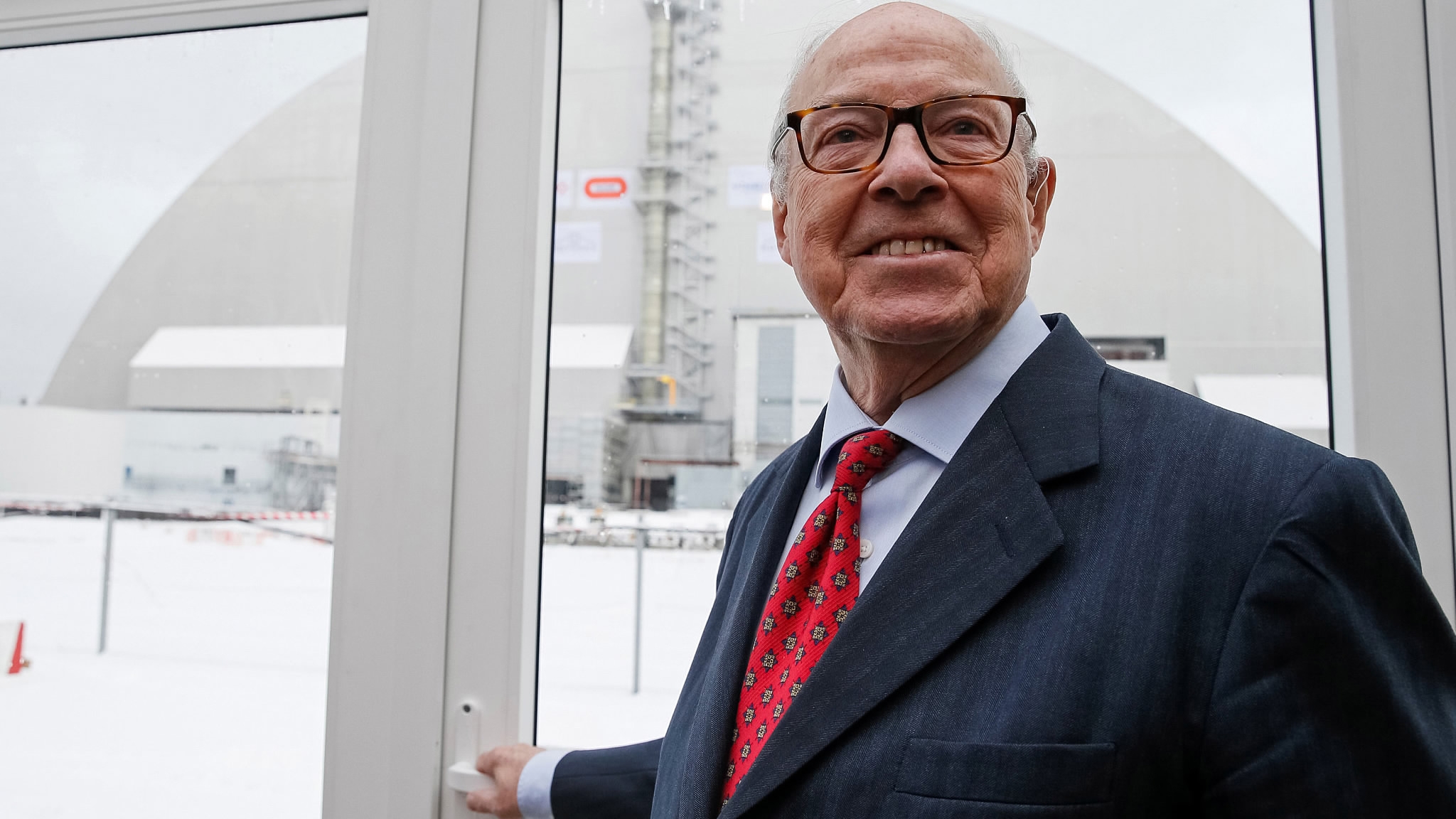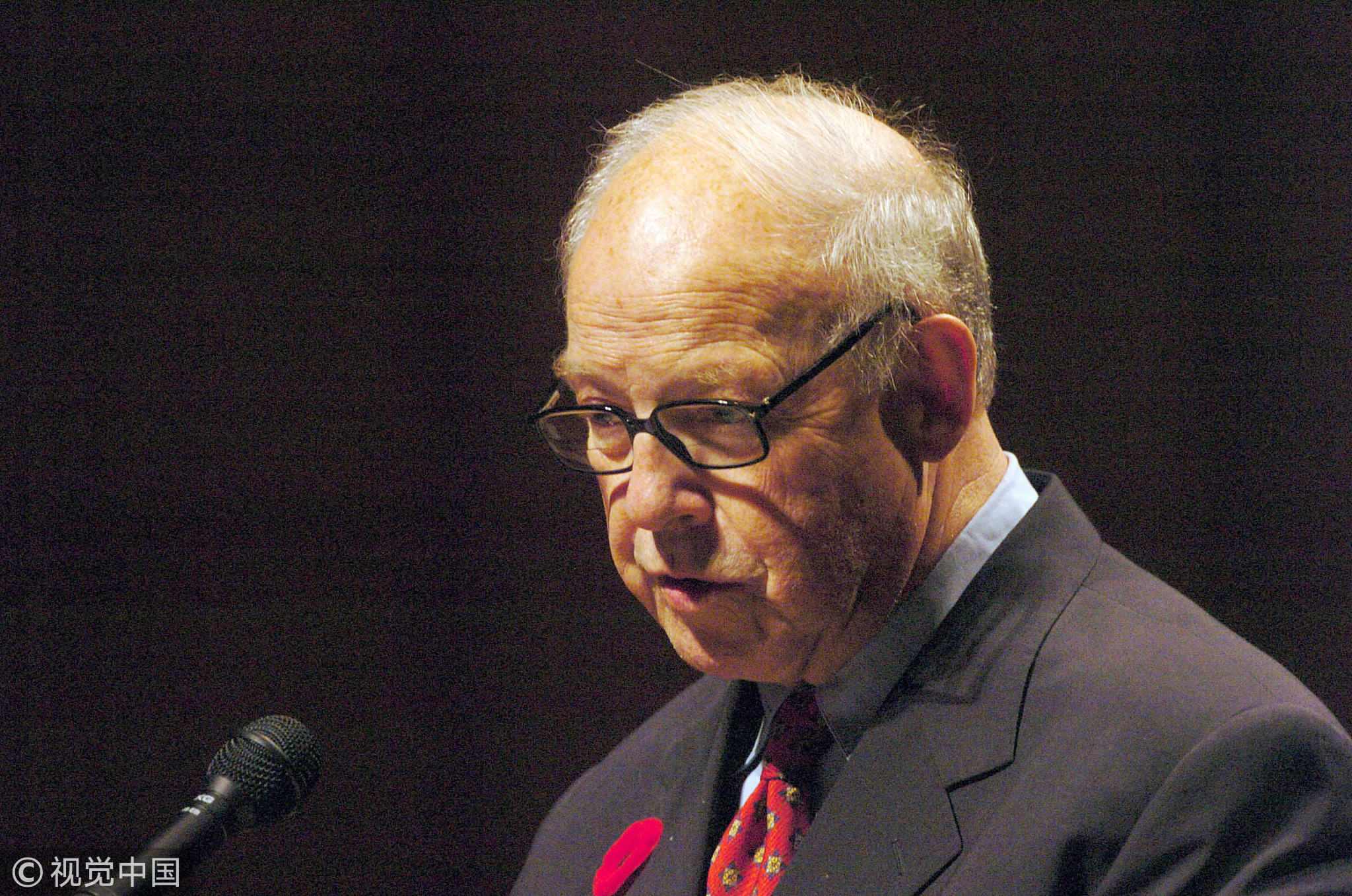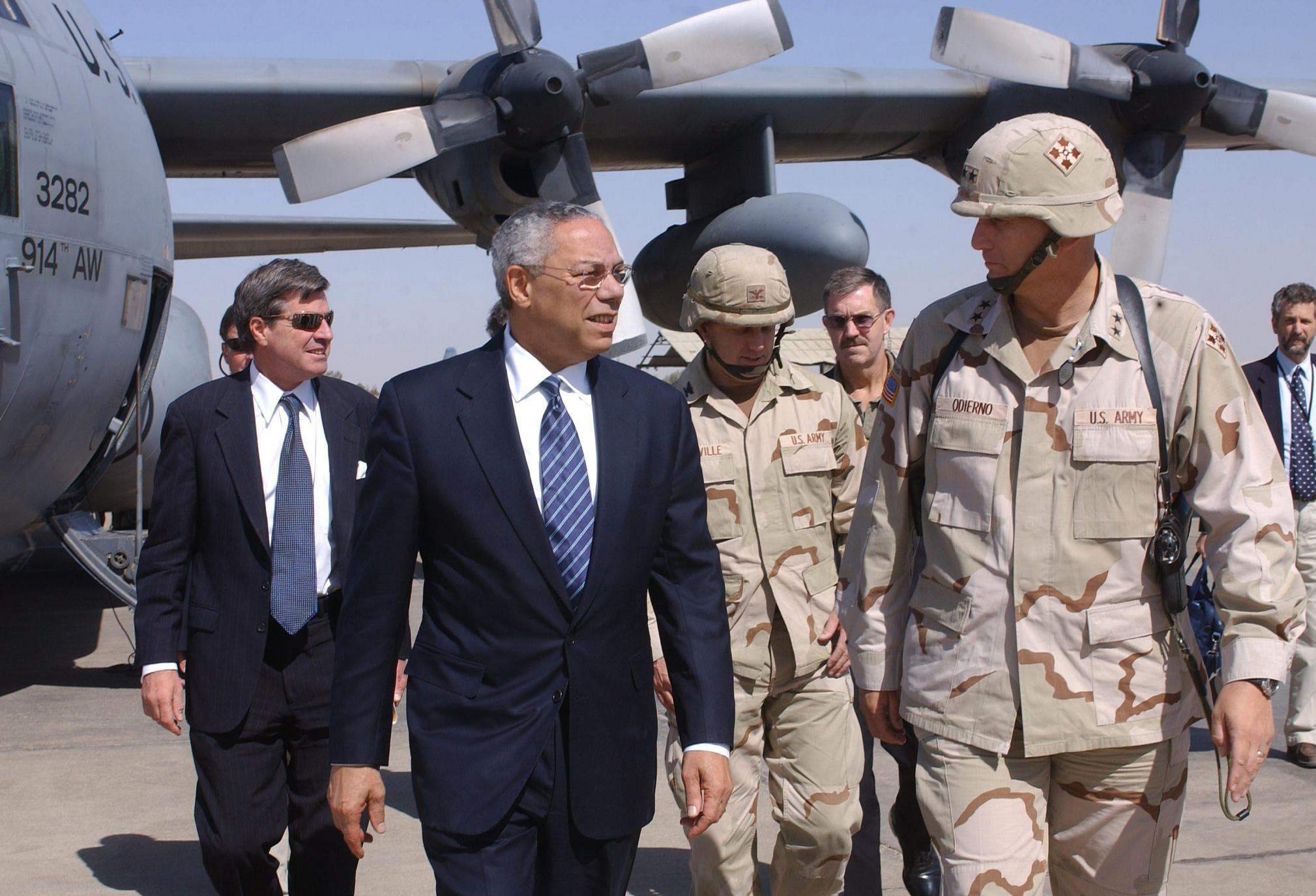
Politics
10:03, 23-Mar-2018
15 years on: Hans Blix looks back at the Iraq War
By Guy Henderson

When Hans Blix became the UN chief weapons inspector for Iraq, political scientist Francis Fukuyama’s “End of History” was all the rage.
Five years later, when Blix stepped down, history was again being written.
In the interceding years, one date stands out to such an extent it needs little further explanation: September 11, 2001. A strike at the heart of the world’s most powerful democracy.

File photo: Former weapons inspector Hans Blix arrives to give evidence to Sir John Chilcott's Iraq inquiry on July 27, 2010 in London, England. /VCG Photo
File photo: Former weapons inspector Hans Blix arrives to give evidence to Sir John Chilcott's Iraq inquiry on July 27, 2010 in London, England. /VCG Photo
Historians will no doubt highlight other dates too.
Within a month, the US-led invasion of Afghanistan began, to hunt down Osama Bin Laden.
By January 29, 2002, George W. Bush’s Axis of Evil speech laid out broader American ambitions. Iraq, it soon became clear, was priority number one.
“Maybe they had a tentative view that this needed to be cleared up,” says Blix when I ask him if he believes Washington had already made up its mind by the time the speech was made. “A residual readiness” to “go it alone” he called it.

File photo: Hans Blix gives a lecture to The Vancouver Institute at the University Of British Columbia on November 8, 2004 in Vancouver, Canada. /VCG Photo
File photo: Hans Blix gives a lecture to The Vancouver Institute at the University Of British Columbia on November 8, 2004 in Vancouver, Canada. /VCG Photo
At the time, Blix’s inspection team weren’t yet on the ground in Iraq. They arrived in November 2002, knowing Saddam Hussein had had weapons of mass destruction. “They destroyed them” in the 1990s, Blix tells me. “The Iraqis made the mistake that all the destruction they undertook, they did not call the inspectors to see.”
That left big question marks for the Americans who accused the Iraqi government of continued deception, as laid out at the UN in February 2003 by US Secretary of State Colin Powell.
Blix had his doubts about the intelligence gathering at the time. Today, he’s equally as scathing: “I think [UK Prime Minister] Blair and others replaced question marks with exclamation marks,” he recalls. Inside Iraq, his team were unable to do the same. After visiting some 700 inspection sites over several months, Blix reported back to the Security Council that he had found little evidence to support claims primarily from the US and the United Kingdom that Iraq’s weapons of mass destruction posed a serious threat to international security.
That was February 14, 2003. Less than a month later, the first bombs dropped on Baghdad.

US Secretary of State Colin Powell (2nd L) talks with Major General Raymond T. Odierno (R), Commander US Army 4th Infantry Division, while walking to a UH-60 Blackhawk helicopter September 15, 2003 in Kirkuk, Iraq. /VCG Pho
US Secretary of State Colin Powell (2nd L) talks with Major General Raymond T. Odierno (R), Commander US Army 4th Infantry Division, while walking to a UH-60 Blackhawk helicopter September 15, 2003 in Kirkuk, Iraq. /VCG Pho
“I’m not convinced they thought there was any danger of weapons of mass destruction, or I wonder if they really believed al Qaeda was there, or that they were convinced they could have a democracy. I think it was more a question of establishing their hegemony,” says Blix.
If that was the aim, it is still not “Mission Accomplished,” as George W. Bush claimed while on-board the aircraft carrier USS Abraham Lincoln on May 1, 2003.
Indeed if anything, America’s sway over the Middle East has only been eroded since. And Fukuyama’s famous theory itself consigned to history.

SITEMAP
Copyright © 2018 CGTN. Beijing ICP prepared NO.16065310-3
Copyright © 2018 CGTN. Beijing ICP prepared NO.16065310-3